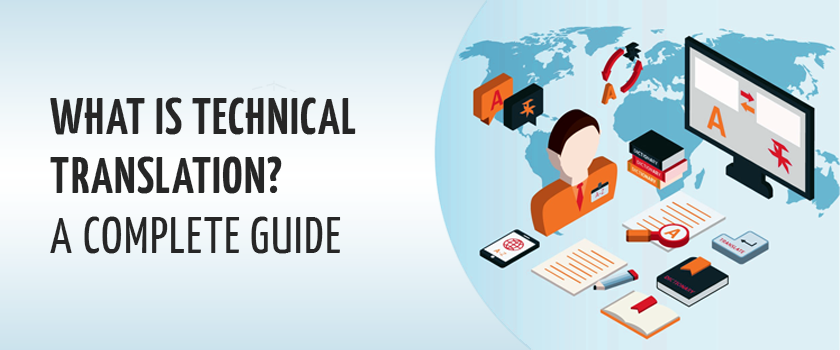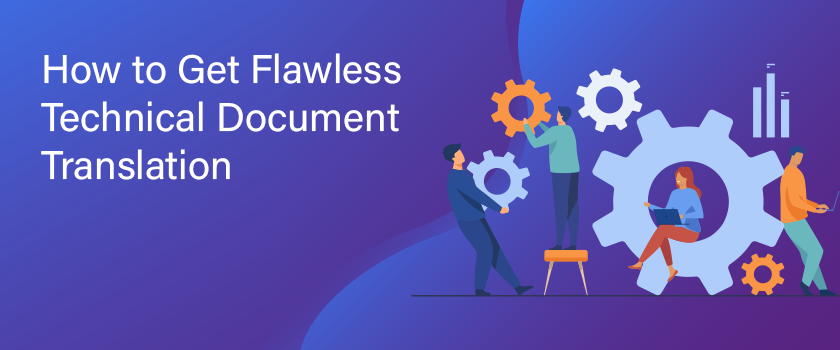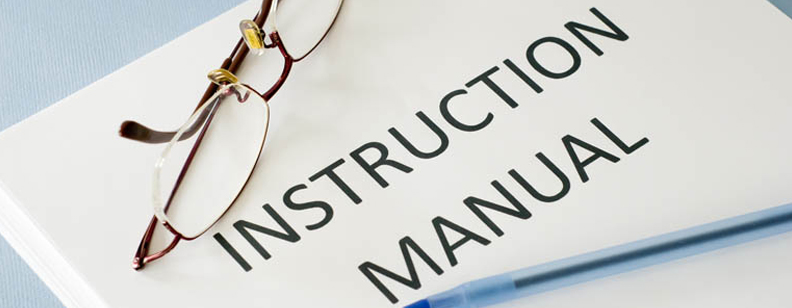In the globalized world, we see two types of countries. These include developed and under-developed. The countries which have spent time and money on technology are developed countries. On the contrary, there are countries that don’t have many resources. They lack advanced technology. They are behind the race of the developed countries. Technology advancement has made life very easy. With the help of technology, time-taking tasks can be done in seconds. You can use the technology if the required information is in your native language. Here comes the need for technical translation.
What is technical translation? Why is it important? How to get the best results for translation? What are the major challenges? If you have any such questions in mind, we have got you covered. Here is a quick guide with all the information that you may need. Take a quick look!
Technical Translation and Its Importance
Technical translation deals with documents containing technical material. It is a specialized form of translation. It contains scientific and technical terminologies. Thus, this translation can not be done by any layman. Therefore, the technical translator should be a subject matter expert.
Moreover, he should possess a deep knowledge of the source and target market. He should have prior experience in a specific technical field. Simply put, he should possess linguistic and translation competencies.
Technical translation deals with different kinds of content. It can be a simple product spec sheet that does not require technical competency. However, it requires a little information about IT. Don’t take technical translation easy. It deals with complex writing documents in different fields.
They may include medical, scientific, and engineering fields. For such technical content, translators must have in-depth industry knowledge. Knowledge and experience in relevant fields will give good results.
Developed countries can help developing countries by providing a technical translation of products and services. Some of the technical documents that require translation are:
- White papers and scientific documents
- User and operating manuals
- Technical reports
- Patents and patent applications
- Datasheets
- Manuals and guides for electronic products
- Technical e-learning manuals
- Technical specification of the products
- Data gathering and its interpretation
- Products installation manuals
- Safety manuals
- Maintenance guides
- Technical drawings
- Technical products and their warranties.
Many companies need technical translations for serving the global market. Moreover, technical translation helps to use technology easily. It further ensures employee safety. Besides, it enhances company productivity by making communication smooth.
Providing technical information in any other language is a complex task. This is because of the differences in the languages. Some of the industries where the technical translation is mandatory are:
- Atomic companies
- Engineering fields
- Tech-savvy companies
- Chemical plants
- Agricultural plants
- Pharmaceutical companies
- Manufacturing firms
- Government organizations.
At present, technical translation is one of the most demanded professional translation services. It is integrated into technological advancement in the modern world. As technology is evolving, this type of translation is the most critical one.
A Subject Matter Expert is Required for Technical Translation
The technical translation should be done by SMEs. Who are the subject matter experts? They are linguistic experts. They possess knowledge of their industry. They use industry-specific terminologies that are easily understood by the target audience. They are proficient in their field. Moreover, they are aware of cultural and regional nuances.
Technical translators know translations of specific terms. For instance, suppose a pharmaceutical company needs the technical translation for an international patent for a drug. The document will have scientific product information. The SMEs will provide you with impeccable translation.
Contrarily, if the technical translator does not possess the required scientific knowledge, it will create confusion. A little error in the translation will result in the application rejection. So, it will be a waste of time and money for the pharmaceutical company.
SMEs are required to avoid Risks
SMEs provide accurate translations. Some documents contain guides about how to operate technical devices. Therefore, to make sure that clients use your equipment without any risk, you require technical translation. The high-quality translation will reduce these risks:
- Industrial accidents due to the wrong use of electrical appliances.
- Initiating and claiming the court cases.
- Not able to provide the best services to patients.
- Company operations failure.
SME can give meaning to your Document
Some companies opt for machine translations. They do so to save time and money. However, in most cases, it is not sufficient. The machine translations cannot provide you with the actual translation of technical terms. They provide you with a summary of the document. Therefore, SME is required for a meaningful translation.
Technical Dictionary
Technical translators use a technical dictionary for accurate translation. Your translator is not a subject matter expert if he relies only on a dictionary. A technical translator should know the jargon to provide state-of-the-art translations. Whether you want a translation of the user manual or any technical product package, only the SME can help.
Requirements of Technical Translations
There is no room for error in technical translations. It is a specialized form of translation. One of the difficult parts of technical translation is achieving accuracy. To achieve accuracy, the translators give attention to details. To become a professional technical translator, you need professional training in linguists and technical writing.
The technical translations are industry-specific. Therefore, the translators should have rich experience in their industry. Technical jargon, terminology, formatting, and abbreviations in technical translation should be accurately translated.
The technical content may include user guides. These are normally written by a technical, writer. Also, technical documents contain content related to scientific and technological subjects. Thus, only technical translators provide the impeccable technical translation.
Technical translation deals with the translation of technical terminologies. Besides, they understand the basics of technical writing.
Most of the technical documents contain 5 to 10 percent of the terminology. The remaining is the source language. Therefore, the translator needs to understand both the culture and technology. These factors determine the quality of translation. The translated document should resonate with the culture. Moreover, it should be written in a free natural flow. In this way, it will provide you with the correct meaning.
Features of Technical Translation
Technical translations tend to be very specific. It contains a lot of technicalities. The functional aspect of the content determines the type of translation you should go for. Technical translators usually opt for such a process that gives attention to details.
Besides, the source and target language also influence the translation process. No doubt, the translation of technical documents is a difficult and time-consuming task. The subject matter experts can provide you with flawless translations. However, you can also check the competency of the translator by the results.
The most common features of technical writing are that they are objective and clear. Therefore, all the technical and scientific texts use the same writing formats. It is so to meet the communication requirements.
As far as the vocabulary is concerned, it contains scientific and technical terminology. The terms that a translator translates should be accurate and depict the real phenomena of the technical products. Moreover, they should describe a product in an easy-to-understand way in the target language. Furthermore, the terms used in the translation should be context-independent.
Challenges of Technical Translation
If you want to translate your technical documents into various languages, you need to understand the challenges that come with translation.
Theoretical Understanding
Technical translators should have a theoretical understanding of the technical products and applications. Only then, they can translate the document to clarify the concepts. The translation should provide accurate information about product use. For doing so, you need industry-specific translators.
For instance, if you want a translation of medical machinery go for a translator who has prior training and worked in the medical field. Such a translator is aware of the terminology used in a medical document. No doubt, accuracy in medical translation is a matter of life and death. So, you cannot take the risk of any errors.
Understanding the Terminology
Every industry has its own set of technical terminologies. Therefore, for industry-specific translations, prior experience is important. For example, for a legal document, a translator who is aware of the legal systems of different countries is the right choice. Why? Because every country has a different legal system.
So, for the translation of English to Arabic documents, you should find a translator who knows the law of the Arabic-speaking country. In this way, the translator can come up with suitable legal terms to fit in a new language.
For this, you need to hire a professional translation company that has a team of experienced technical translators.
Accurate Translation
Technical translation is needed in every aspect of life. These also include medical prescriptions and legal cases. Moreover, the accuracy of the translation matters a lot. The inaccurate translation will have lethal effects in medical and legal fields. Moreover, it can affect your company image. Besides, it can negatively impact your sales.
Fast Turnaround Time
It is very important to get technical translations on time. For example, medical translation is required on time to save lives. Moreover, the legal translation is required to follow the rules and regulations. Therefore, you should work with qualified translators. Why? They can provide technical translations in a fast turnaround time. Furthermore, for translating a large-scale technical project in time, the translators should have project management skills.
Localizing the Technical Content
Translating your document to another country? Make sure that your translator also considers localization. Localization ensures that documents are according to the regional nuances. It also ensures that cultural aspects are considered. Why is it important? There are several countries where certain images and content are considered inappropriate. Catering to them will make the translation effective. The localized content will help to reach the target market easily.
Complex Sentence Structures
Technical documents are often full of complex sentence structures and technical details. Translators must be able to break down these structures and reassemble them in the target language while preserving the meaning and accuracy of the original text.
Formatting and Layout
Formatting and layout requirements are very common in technical documents. They must be preserved in the technical translation. Translators should be equipped with different tools and software used to create the original document. They should also ensure that the translated document meets the same requirements.
Legal and Regulatory Compliance
Technical documents are often subject to legal and regulatory compliance requirements. Linguists must be aware of these requirements and ensure that the translation complies with them. Failure to do so can result in legal and financial consequences for both the translator and the client.
Wrapping Up
Using technical translation for the first time? Prepare yourself in advance. Accuracy and cultural relevance are the two things to consider. Keep all the technical information updated. Discuss your technical translation requirements with top translation companies. Select a professional translation company that provides impeccable technical translations with a localization touch.
Do you need technical translation for user guides, manuals, or any other type of content? CCJK is there for you. Contact us for more details!



